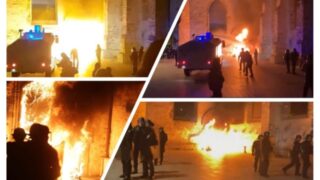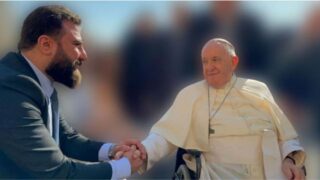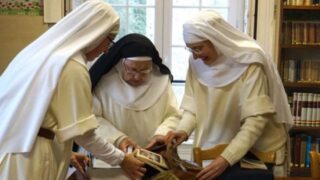He died twenty years ago and his beatification process has been blocked after the Vatican-China agreement. He should not be forgotten.
by Massimo Introvigne


Many have commented that the Vatican-China deal of 2018 was the reason why the twentieth anniversary of the death of Cardinal Ignatius Kung Pin-mei (1901–2000) was not officially celebrated, and his beatification process remains stalled. Beyond the controversies, the anniversary is a good opportunity to revisit the extraordinary story of a Catholic Bishop who refused to humor the CCP, and spent thirty years in Chinese jails for this.
The future Cardinal Kung was born in Shanghai on August 2, 1901. In 1950, he was appointed as the first Chinese-born Catholic Bishop of his native city. He maintained a lifelong interest in a Catholic lay movement known as the Legion of Mary. In the Chinese context, he conceived it as a tool to organize lay Catholics and protect them from CCP infiltration and propaganda. The CCP denounced the Legion of Mary as a “secret society” and a xie jiao, and several members were arrested. The typical penalty was ten years in jail, but some were sentenced to fifteen years. This did not stop Bishop Kung, however, and he started instructing lay leaders how to continue their activities underground in the future.
On September 8, 1955, Bishop Kung was arrested by the CCP police, together with more than 200 priests and lay Catholic leaders in Shanghai. Some months thereafter, the CCP announced that the Bishop will publicly confess his crimes. He appeared in Shanghai’s Dog Racing Stadium, dressed in a pajama and with hands tied behind his back. He was pushed towards a microphone to pronounce his confession. Thousands of Catholics had been compelled to attend the event. When he was near the microphone, the Bishop simply shouted, ‘Long live Christ the King, Long live the Pope.” The crowd responded, “Long live Christ the King, Long live Bishop Kung.” The event was quickly suspended, and Bishop Kung taken back to jail. He reappeared only in 1960, to be sentenced to life imprisonment.
He was released only in 1985, after thirty years in jail, often in horrific conditions, and was told he should spend another ten years under house arrest. Unbeknownst to Bishop Kung, Pope John Paul II (1920–2005) had created him a cardinal in pectore (i.e. in secret) in 1979. Catholics had not forgotten him, and when secular NGOs joined the Catholic Church in denouncing the intolerable persecution of Bishop Kung, who was denied essential medical care, the CCP finally allowed him in 1988 to travel to United States to be hospitalized there. In 1991, Pope John Paul II publicly proclaimed him a cardinal. Kung will never return to China and will die in Stanford, Connecticut, at age 98 on March 12, 2000. At that time, he was the oldest living Catholic cardinal. As he had requested, he was buried in the cemetery of the Santa Clara Mission in California next to another Catholic hero of the Chinese resistance to the CCP, the Jesuit Archbishop of Guangzhou, Dominic Tang Yee-ming (1908–1995).
In the years of the Underground Catholic Church, Cardinal Kung was a constant inspiration and reference. He preferred imprisonment and torture to acquiescence to the CCP’s requests that he joined the Chinese Patriotic Catholic Association. His legacy should not be forgotten.









